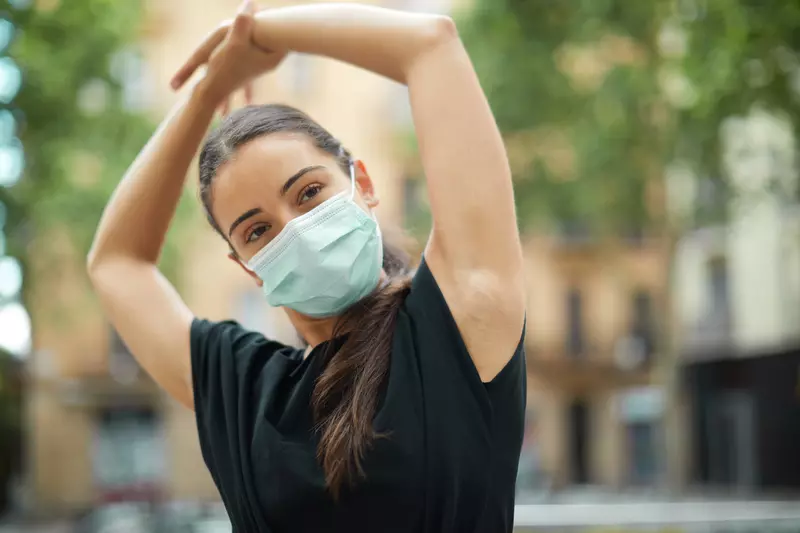- AdventHealth

With stay-at-home orders being lifted, you may be eager to get outside, especially as we take advantage of summertime. But before you head out for a jog in the sun or a lazy afternoon by the pool, remember that your health needs to remain a top priority. Some of the best parts of summer — like picnics, pool parties and sports outings — present new challenges in the wake of the pandemic.
Healthy practices such as social distancing, washing our hands and wearing masks in public may impact our outdoor fun but are incredibly important. We’ll need to combine these new safety measures with traditional ones to protect ourselves as communities open for the summer.
While these may be new to us, practicing skin cancer prevention is not and should be constant. As the pandemic has encouraged more outdoor activity, it’s more important than ever to protect skin. Learn how to enjoy the sun safely with AdventHealth Medical Oncologist Sarah George, MD.
About Skin Cancer
Skin cancer is not only the most common form of cancer, it’s also the most preventable. Millions of people are diagnosed with skin cancer every year. “The most common types are basal cell carcinoma (BCC) or squamous cell carcinoma (SCC), named after the kinds of cells they originate in, and they are easily treatable if caught early. Some types, including melanoma, are more aggressive and can spread to other parts of the body,” according to Dr. George.
Detecting Skin Cancer
The sooner skin cancer is identified and treated, the better chance it has to be cured. When detected in its earliest stages, skin cancer is highly treatable. Be sure to watch your skin for any changes, especially in color, texture and growths.
You should also monitor any new or existing moles for:
Asymmetry – Do you have moles that are an uneven/asymmetrical shape? If you drew an imaginary line down the center, would it be the same as the other side?
Border – Are there any irregular borders around your moles?
Color– Do you have any moles that are more than one color?
Diameter– Do you have a mole that’s bigger than a pencil eraser?
Evolved– Has your mole gotten bigger or thicker?
You should have a doctor check it out if you notice any of the warning signs listed above, or if you have a sore that won’t heal, or a patch of skin that seems dry, scaly and itchy.
Preventing Skin Cancer
Skin cancer is almost always caused by exposure to the sun, so there’s a lot you can do to prevent it. First, it’s important to understand that even on the cloudiest days, you’re being exposed to ultraviolet (UV) rays from the sun. That means that protecting your skin is a year-round job. And the earlier you get started, the better.
“You are never too young to start protecting your skin. In fact, preventing sunburns and avoiding damaging rays of the sun during childhood are crucial to preventing skin cancers from occurring later in life,” says Dr. George. Regardless of which stage you’re at, here are some tips to keep your skin healthy and cancer-free:
Don’t Tan
Simply put, a tan is just skin damage. Laying out to get a tan, or using a tanning bed, is choosing to damage your skin. There are countless drugstore products that can give you a sun-kissed glow without a single damaging ray touching your skin.
Wear Sunscreen Every Day
It’s not just for a day at the pool or a long hike. You should apply sunscreen every single day — winter or summer, sunny or cloudy, indoors or out. Did you know that sun rays can even damage your skin through windows? Yep, that means in the car or even at your desk, you can be getting UV exposure.
Sunscreen tips:
- Apply properly. Be generous and remember to apply to the easily forgotten areas: top of your feet, top of your head, top of your ears, and your neck.
- Use broad-spectrum. Use a broad-spectrum sunscreen to protect from UVA and UVB rays.
- Reapply. You need to reapply the full amount of sunscreen every two hours if you’re sweating or getting wet.
- Note the SPF. Choose a minimum of 15 SPF for everyday use and 30 SPF or higher for days when you’ll be spending time outdoors.
- Consider water-resistant. Be sure to choose a water-resistant formula if you’re going to be swimming or sweating.
Wear Protective Clothing
“Skin cancer often develops in sun exposed areas but can happen elsewhere as well. UV light can still penetrate clothes, so wearing lightweight clothing (long sleeves and long pants) can offer extra protection,” says Dr. George.
Also consider wearing sunglasses that block out both UVA and UVB rays, and a wide-brimmed hat. If you’re near water, the reflection of the sun’s rays can be even more impactful. Being in high altitude environments can also intensify exposure.
Choose Your Outdoor Time Wisely
The sun is strongest between 10 am and 2 pm. If possible, plan outdoor activities outside of these peak times. If you are outside during the peak times, try to spend time in the shade.
Other Factors to Consider
While sun safety is crucial to skin cancer prevention, Dr. George emphasizes that there are other factors to consider as well.
“Certain medications can make you more sensitive to the UV rays of the sun. Some people are more prone to skin cancer due to their family history. It’s best to check with your physician on concerns about risk that are outside of your control, but proper skin care and sun safety go a long way.”
Being properly prepared before spending time in the sun can keep you free of short-term burns and long-term damage. And being proactive about prevention is always a great idea. To learn more about skin cancer, visit AdventHealthCancerInstitute.com/SkinCancer.



